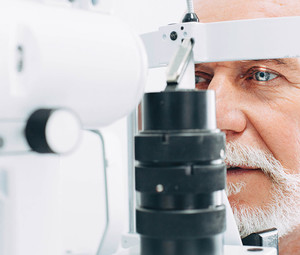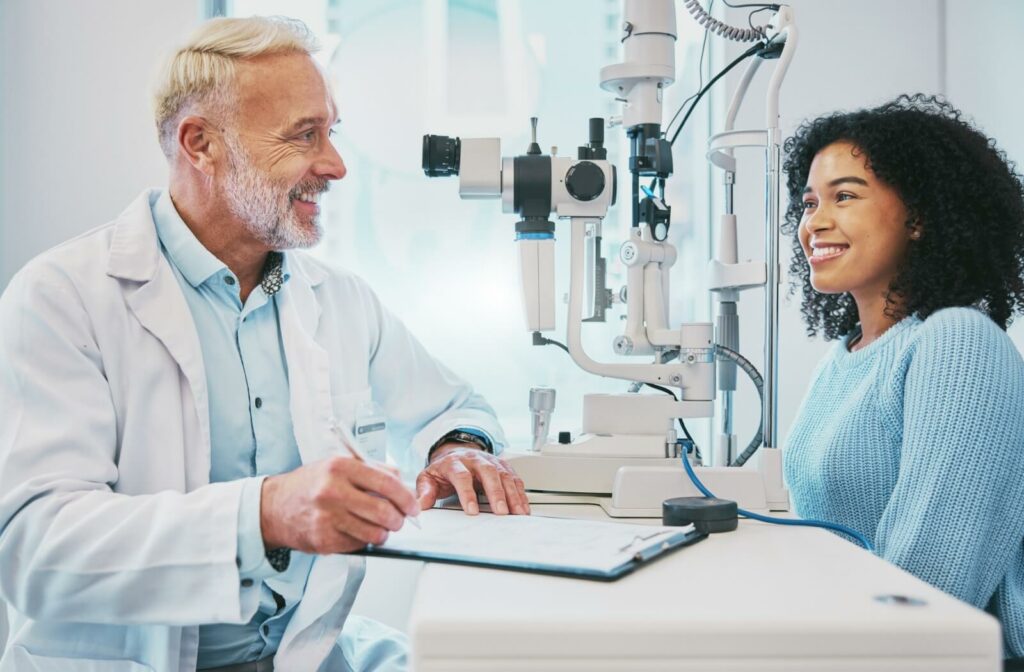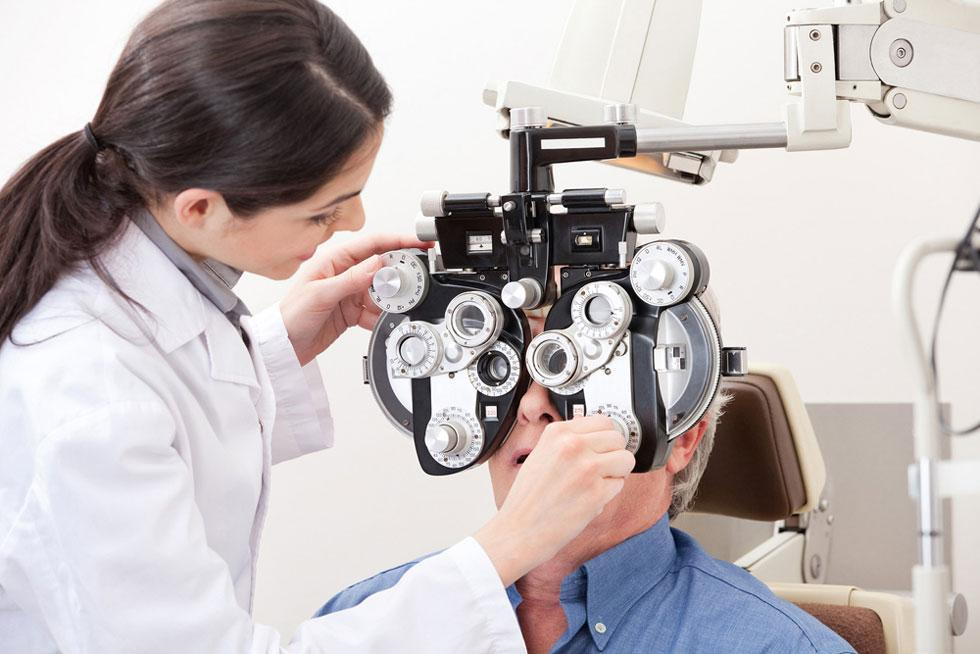All Categories
Featured
Opening Opportunities: Comprehensive Low Vision Rehabilitation Alternatives.
Living with reduced vision can present unique challenges, yet modern-day recovery approaches equip people to thrive and adjust. From sophisticated technology to hands-on training, there are many choices designed to boost life and foster freedom. Right here's an in-depth check out the varied rehabilitation options readily available for those with low vision.
The Duty of Reduced Vision Rehab
Low vision rehabilitation concentrates on aiding individuals enhance their staying vision and develop skills to manage their surroundings. With a mix of devices, training, and individualized assistance, rehab programs boost capability and increase self-confidence in navigating day-to-day activities.
Key Low Vision Rehabilitation Options
Personalized Visual Aids
High-Powered Magnifiers: These devices are available in handheld, wearable, or digital styles, permitting customers to review, compose, or view objects up close.
Telescopic Glasses: Perfect for improving distance vision, these glasses aid with activities such as seeing television or analysis indications.
![]()
Filter Lenses: Tinted lenses decrease glow, improve contrast, and supply UV protection, enhancing comfort and visibility.
Technical Advancements
Digital Magnification Devices: Desktop computer and mobile devices use flexible magnifying, allowing less complicated access to published products and digital content.
![]()
Voice-Assisted Innovation: Display readers, voice-enabled smartphones, and AI-driven applications help individuals navigate the electronic globe extra effectively.
Wearable Vision Aids: Smart glasses geared up with cams and acoustic responses provide real-time help with analysis, recognizing things, and spatial positioning.
Expert Training Programs
Orientation and Mobility Training: This program shows individuals exactly how to relocate confidently within their homes and communities, commonly including walking sticks or overview dogs.
Daily Living Skills: Specialized training gears up people with strategies to perform necessary tasks such as food preparation, clothing, and managing family duties.
Adaptive Visual Methods: Specialists overview people on leveraging outer vision or scanning approaches to make up for vision loss.
Environmental Adjustments
![]()
Basic changes in the house or job can substantially boost ease of access:
Using different colors for better item distinction.
Including job lighting to enhance visibility.
Marking appliances with tactile signs for much easier procedure.
Emotional and Social Support
Coping with vision loss frequently involves psychological changes. Support system and therapy solutions offer a risk-free room to share experiences and construct durability.
Peer mentoring programs link people with comparable obstacles, fostering sociability and shared options.
Accessing Rehabilitation Services
Reduced vision rehabilitation services are commonly available through:
Specialized Clinics: Optometrists and ophthalmologists educated in reduced vision treatment supply tailored analyses and remedies.
Nonprofit Organizations: Teams like the American Structure for the Blind and VisionAware provide resources, assistance, and recommendations.
Neighborhood Centers: Local services may offer low-cost or cost-free training and accessibility to assistive tools.
Last Thoughts
By exploring the various recovery choices available, those with low vision can locate methods that work best for their unique demands and situations. If you or an enjoyed one deals with vision difficulties, do not think twice to get to out to a low vision expert to start the trip toward empowerment and flexibility.
Living with reduced vision can present unique challenges, yet modern-day recovery approaches equip people to thrive and adjust. From sophisticated technology to hands-on training, there are many choices designed to boost life and foster freedom. Right here's an in-depth check out the varied rehabilitation options readily available for those with low vision.
The Duty of Reduced Vision Rehab
Low vision rehabilitation concentrates on aiding individuals enhance their staying vision and develop skills to manage their surroundings. With a mix of devices, training, and individualized assistance, rehab programs boost capability and increase self-confidence in navigating day-to-day activities.
Key Low Vision Rehabilitation Options
Personalized Visual Aids
High-Powered Magnifiers: These devices are available in handheld, wearable, or digital styles, permitting customers to review, compose, or view objects up close.
Telescopic Glasses: Perfect for improving distance vision, these glasses aid with activities such as seeing television or analysis indications.

Filter Lenses: Tinted lenses decrease glow, improve contrast, and supply UV protection, enhancing comfort and visibility.
Technical Advancements
Digital Magnification Devices: Desktop computer and mobile devices use flexible magnifying, allowing less complicated access to published products and digital content.

Voice-Assisted Innovation: Display readers, voice-enabled smartphones, and AI-driven applications help individuals navigate the electronic globe extra effectively.
Wearable Vision Aids: Smart glasses geared up with cams and acoustic responses provide real-time help with analysis, recognizing things, and spatial positioning.
Expert Training Programs
Orientation and Mobility Training: This program shows individuals exactly how to relocate confidently within their homes and communities, commonly including walking sticks or overview dogs.
Daily Living Skills: Specialized training gears up people with strategies to perform necessary tasks such as food preparation, clothing, and managing family duties.
Adaptive Visual Methods: Specialists overview people on leveraging outer vision or scanning approaches to make up for vision loss.
Environmental Adjustments

Basic changes in the house or job can substantially boost ease of access:
Using different colors for better item distinction.
Including job lighting to enhance visibility.
Marking appliances with tactile signs for much easier procedure.
Emotional and Social Support
Coping with vision loss frequently involves psychological changes. Support system and therapy solutions offer a risk-free room to share experiences and construct durability.
Peer mentoring programs link people with comparable obstacles, fostering sociability and shared options.
Accessing Rehabilitation Services
Reduced vision rehabilitation services are commonly available through:
Specialized Clinics: Optometrists and ophthalmologists educated in reduced vision treatment supply tailored analyses and remedies.
Nonprofit Organizations: Teams like the American Structure for the Blind and VisionAware provide resources, assistance, and recommendations.
Neighborhood Centers: Local services may offer low-cost or cost-free training and accessibility to assistive tools.
Last Thoughts
By exploring the various recovery choices available, those with low vision can locate methods that work best for their unique demands and situations. If you or an enjoyed one deals with vision difficulties, do not think twice to get to out to a low vision expert to start the trip toward empowerment and flexibility.
Latest Posts
Quick Emergency Situation Roof Covering Repair Work-- Your Drip Option Professionals
Published Apr 18, 25
1 min read
Practical Carpeting Look After Lasting Charm
Published Apr 17, 25
1 min read
Selecting the Right Bank Account for Your Demands
Published Apr 17, 25
1 min read